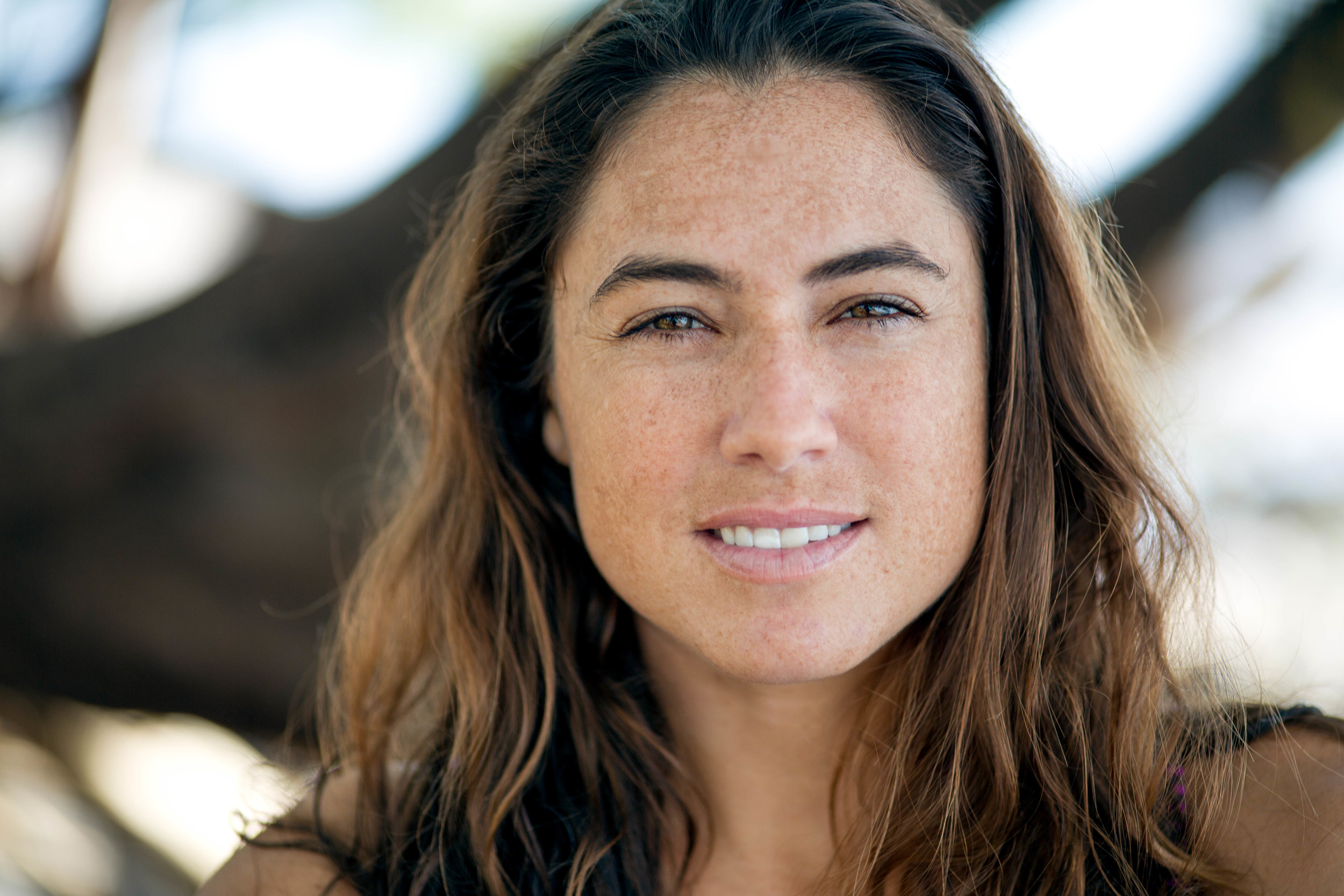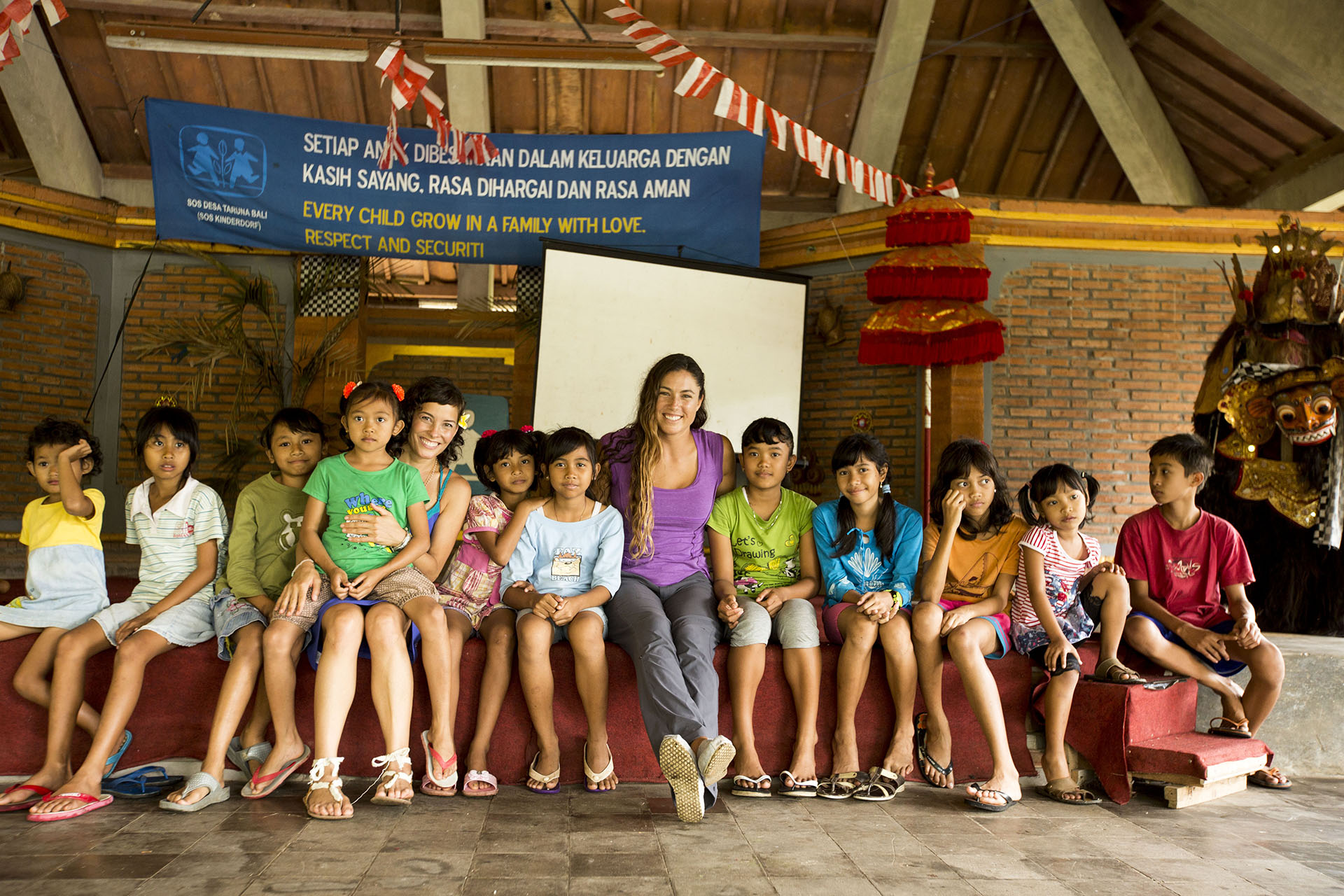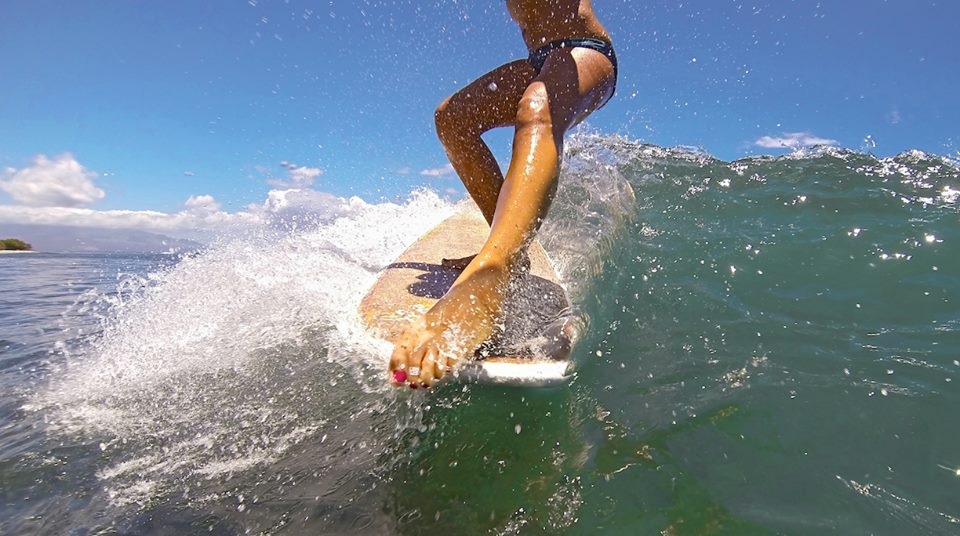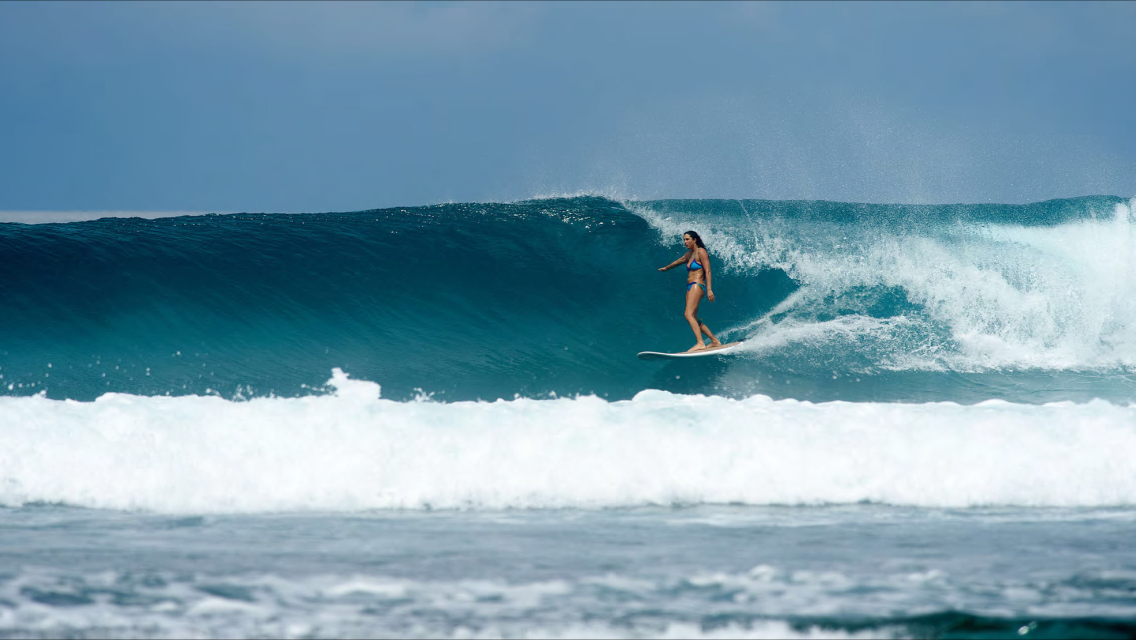Kelly Potts is a pro surfer who chose to use her talent to inspire the next generation of young female surfers. Her women-only surfing seminars aim to establish a tight knit group to help young girls not only improve their surfing, but their communities as well. She found time in her busy schedule to tell us a bit about her vision, and her plans for growth.

1. You’ve dedicated so much of your life to mentoring young girls through the sport of surfing, what drives you to pursue something so selfless?
Teenage years can be tough – at least for me it was. The only thing that gave me emotional relief was surfing and being involved in sports. It gave me something to focus on, and empower myself with, while my peers fell victim to the varying struggles and pressures of life and society.
At a certain point in my youth, I was experiencing “depression”, and remember sharing my “woes” with an older couple. They asked if I’d ever volunteered for anything before. I didn’t see how that related to my problems, but after devoting several weekends of volunteer work on Maui, I realized how insignificant my problems were, and how great it felt to focus on making the world a better place.
I’ve always been a coach at heart (my greatest mentors growing up are my coaches), and surfing is my therapy, so I decided to create free surfing clinics for young girls to experience the empowering, healing effects of surfing. I want to be a positive role model for them to look up to, and feel supported in their journey through adolescence.
Now volunteerism is my life, and there is no better feeling to me than actively participating in the betterment of life on this planet.
2. Your aim in mentorship seems to be community building, how does that community work with an individual sport like surfing, and what are the results?
What I love about surfing is the community it creates. Growing up and being involved in local contests I got to know more intimately my surf community, and felt comforted seeing familiar faces when free surfing different spots around the island. I knew people were looking out for me, and they always encouraged me to keep shredding.
What I love about surfing communities in Hawaii is how everyone looks out for each other: sharing waves, sharing equipment, offering food and having long talk-story sessions. It’s so much more than individuals going out and taking whatever they can for themselves – We are ‘ohana (family).
When I started my surf mentorship programs, I hoped the girls would gain this awareness of community through my clinics: making sure they help each other out when they see a need, encouraging each other in the line-up by sharing waves and hooting it up for one another, getting together after a surf to share stories of our waves, or just talk about stuff that’s going on in our lives. It’s heart-warming seeing the girls’ parents and families meeting up for these clinics, and how we really are a big family because of surfing.
3. You recently took your surfing events to the mainland USA, how did that experience compare to your regular Hawaiian events?
Last year I hosted my free surfing clinics for indigenous girls and women of the Makah Tribe in Washington, and will hopefully continue to do so every year.
What really blew me out of the water was how closely related the Makah are to the gals I teach on Maui. They have a laid-back vibe, with confident, strong, adventure-seeking girls and women that are so much like the ladies I teach back home. Sure we had to wear wetsuits instead of just going out in our bathing suits, and sure the waves were different from the waves on Maui, but the community vibe was the same I experience at my clinics in Hawaii.
The results of surf therapy are universal – ladies learn about themselves, find empowerment from every wave, and are surrounded with a supportive group of women who also want to be bad ass. Magic Happens.
4. What are some of the core principles of your mentorship, and how can those of us not lucky enough to live near the surf cultivate them ourselves?
What I hope to achieve through my mentorship programs is for everyone to actively pursue and surround ourselves with people who build us up, to cultivate a sense of community and family, to offer encouragement and support for each other, to look out for one another, to show compassion, to recognize a need, to help. These are gifts that we all naturally possess, and something we can all share, regardless of what common interest it is that brings us together. We need more of this in the world, and providing these surfing programs is one way I can set an example.

5. As someone who has surfed for many years, have you thought of adding an environmental aspect to your lessons, to address the future health of your favorite surf spots?
Over the years of hosting surfing clinics, and sometimes large community surfing events, I have been implementing environmental awareness into my programs, and done my best to leave as little impact as possible at the locations I host.
In all my surfing land lessons I stress the importance of staying off the reef to encourage reef growth and stability, as well as inform my students of the harmful chemicals in most sunscreens we use. I encourage my students to use reef safe/environmentally friendly sunscreens, and to limit their sunscreen use by simply covering up: long pants, long sleeves, and a hat.
Thanks to the support from my prAna family, I am now providing re-usable plates, utensils, and cups, in hopes of being able to narrow down all the trash from one event of nearly 50 people into a single small trash bag. Ideally I’d like to be able to collect all the trash from one event into a single large mason jar.
6. Do you have plans to expand your programs in the near future?
Oh boy do I have plans! Life is so full of big dreams, most of which will never be seen… BUT the ones that speak to me constantly are the ones that stick, and are the ones I naturally pursue and see through to fruition.
In the future I’d like to create leadership mentorship programs for our indigenous girls and women to acknowledge and harness the natural wisdom they possess through their ancestors, and encourage them to become active leaders in our country – implementing their native intelligence to create new policy. I believe our indigenous people behold the knowledge and compassion this planet needs to help reverse the damage we have done to the earth, the people of this nation, and the world.

7. Any advice for someone who wants to start surfing on their own?
For anyone wanting to learn how to surf on their own, go to your local surf breaks (or nearest breaks, or breaks that you would frequent), and WATCH. Watch where the other surfers get in and out of the water, take note of the ocean’s rhythms, see how waves travel in sets, how waves like to build in particular spots along the coast, notice areas where waves don’t typically break so that you can use that to paddle out. Notice the size of the waves, if any wind exists, are there rip currents, what are landmarkers you can use to line up with the waves and the channels.
Most importantly, take a surfing lesson. It is dangerous to just head out to a line-up if you don’t have previous surfing experience – to yourself and others around you. If you have a little experience, talk story with local surfers before you head out. They have the advice you need for a safe and successful surf session.







